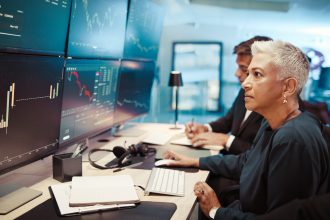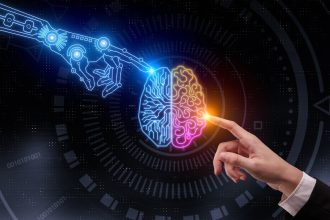
The $30 million bet that could make your security team obsolete just sparked the biggest debate in cybersecurity. Prophet Security announced Tuesday it raised $30 million to deploy “autonomous AI defenders,” or artificial intelligence that investigates security threats faster than any human team ever could. Here’s what’s got industry insiders buzzing: While organizations are drowning in alerts and desperate for help, experts warn that fully autonomous security operations are a dangerous myth that could leave companies more vulnerable than ever.
The numbers tell a shocking story. In the time it takes to read this, your company’s security team is drowning in 4,484 security alerts per day, with 67% going ignored because analysts are completely overwhelmed. Meanwhile, cybercrime damages are racing toward $23 trillion by 2027, and there’s a global shortage of nearly four million cybersecurity professionals. Prophet Security’s radical solution? An AI that never sleeps, never takes breaks, and can investigate alerts in under three minutes. Compare that to the 30-minute baseline most teams report.
The $30M promise: An AI defender that never sleeps
Meet the AI that never takes coffee breaks, never calls in sick, and processes security threats while your human analysts sleep. Prophet Security’s Agentic AI SOC Analyst — think “AI that acts like human security experts” — represents a completely new breed of artificial intelligence that goes far beyond simple automation. Unlike traditional security tools that wait for human commands, this system autonomously triages, investigates, and responds to security alerts across entire IT environments without human intervention.
This AI has already investigated more threats than most analysts see in a decade. Prophet reports its system has performed more than 1 million autonomous investigations across its customer base, delivering 10 times faster response times and a 96% reduction in false positives. For organizations where up to 99% of SOC alerts can be false positives, this isn’t just improvement — it’s a complete revolution in how cybersecurity works.
Prophet isn’t alone in this AI arms race. Deloitte’s 2025 cybersecurity forecasts predict that 40% of large enterprises will deploy these autonomous AI systems in their security operations by 2025, while Gartner predicts that 70% of AI applications will use multi-agent systems by 2028.
What is keeping cybersecurity experts awake at night
Here’s what has been keeping cybersecurity experts awake at night after Prophet’s announcement: The technology they’re betting everything on might be fundamentally flawed. Despite the impressive promises, leading cybersecurity experts are sounding alarm bells about the rush toward autonomous security systems. Gartner predicts that fully autonomous security operations centers are not just unrealistic — they’re potentially catastrophic.
The real terror? Companies are already reducing human oversight precisely when AI systems are most vulnerable to attack. By 2030, 75% of SOC teams may lose foundational analysis capabilities due to over-dependence on automation. Even more alarming, by 2027, 30% of SOC leaders will face challenges integrating AI into production, and by 2028, one-third of senior SOC roles could stay vacant if organizations don’t focus on upskilling their human teams. What’s truly shocking is AI’s vulnerability to the very adversaries it’s supposed to stop. NIST research confirms that AI systems can be deliberately confused or “poisoned” by attackers, with “no foolproof defense” that developers can employ.
“Most of these attacks are fairly easy to mount and require minimum knowledge of the AI system,” Northeastern University professor Alina Oprea warned. The implications are terrifying. The AI designed to protect you could become the very weapon used against you.
The companies making this choice right now will determine everything
The cybersecurity industry is at an inflection point that will determine whether AI saves cybersecurity or destroys it. While Prophet Security’s $30 million funding round signals massive investor confidence in AI-powered defense, the technology’s critical limitations are becoming impossible to ignore. Current “autonomous” systems actually operate at Level 3-4 autonomy, which means they can execute complex attack sequences but still need human review for edge cases and strategic decisions. True autonomy remains a dangerous fantasy.
The path forward requires a fundamental shift in thinking toward a strategic human/AI partnership rather than wholesale replacement. Microsoft Security Copilot has already demonstrated how AI assistance helps responders address incidents “within minutes instead of hours or days” while maintaining critical human oversight. Similarly, ReliaQuest reports that its AI security agent processes alerts 20 times faster than traditional methods while improving threat detection accuracy by 30%, with humans firmly in control.
“This is not about eliminating jobs,” Prophet Security’s leadership told VentureBeat. “It’s about ensuring an analyst doesn’t have to spend time triaging and investigating alerts.”
But the companies rushing to deploy these systems right now are making decisions that will echo for years. Because in cybersecurity, the cost of getting it wrong isn’t just financial — your next data breach could depend on this choice. The organizations that survive will be those that use AI to amplify human expertise rather than replace it entirely, because when adversaries start using AI against AI, you’ll want humans watching the watchers.





